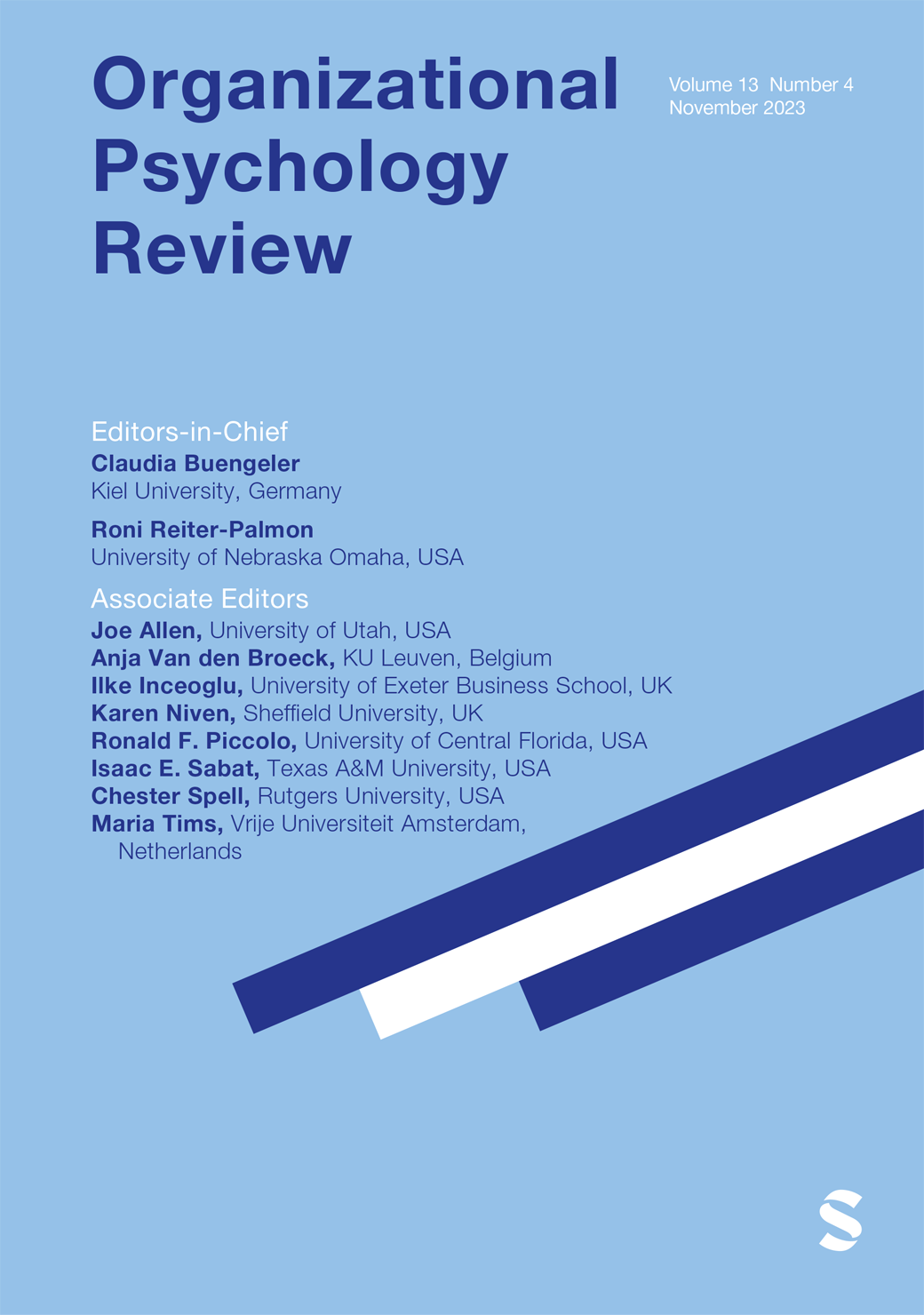“Aging-and-Tech Job Vulnerability”: A proposed framework on the dual impact of aging and AI, robotics, and automation among older workers
IF 7.1
1区 心理学
Q2 MANAGEMENT
引用次数: 9
Abstract
As the aging population and workforce constitute a worldwide concern, it is becoming necessary to predict how the dual threat of aging and technology at work increases the job vulnerability of older workers and jeopardizes their employability and permanence in the labor market. The objective of this paper is twofold: (1) to analyze perceptions of artificial intelligence, robotics, and automation in work settings and the expected impact of these technologies on older workers to contextualize this emergent phenomenon; and (2) to propose a general model related to “Aging-and-Tech Job Vulnerability” to explain and predict the combined effect of aging and AI/robotics/automation on job insecurity and additional outcomes among older workers. The propositions of the Age-and-Tech Job Vulnerability model developed in this paper seek to present a first approach for the conceptual advance and research on this emerging phenomenon and entails several theoretical and practical implications for organizational psychology.“老龄化和技术工作脆弱性”:关于老龄化和人工智能、机器人和自动化对老年工人的双重影响的拟议框架
随着人口老龄化和劳动力老龄化成为全世界关注的问题,有必要预测老龄化和工作技术的双重威胁如何增加老年工人的工作脆弱性,并危及他们在劳动力市场的就业能力和持久性。本文的目的有两个:(1)分析工作环境中对人工智能、机器人和自动化的看法,以及这些技术对老年工人的预期影响,以将这一新兴现象置于情境中;以及(2)提出一个与“老龄化和技术工作脆弱性”相关的通用模型,以解释和预测老龄化和人工智能/机器人/自动化对老年工人工作不安全感和额外结果的综合影响。本文提出的年龄和技术工作脆弱性模型旨在为这一新兴现象的概念推进和研究提供第一种方法,并对组织心理学产生了一些理论和实践启示。
本文章由计算机程序翻译,如有差异,请以英文原文为准。
求助全文
约1分钟内获得全文
求助全文
来源期刊

Organizational Psychology Review
Multiple-
CiteScore
10.00
自引率
1.60%
发文量
25
期刊介绍:
Organizational Psychology Review is a quarterly, peer-reviewed scholarly journal published by SAGE in partnership with the European Association of Work and Organizational Psychology. Organizational Psychology Review’s unique aim is to publish original conceptual work and meta-analyses in the field of organizational psychology (broadly defined to include applied psychology, industrial psychology, occupational psychology, organizational behavior, personnel psychology, and work psychology).Articles accepted for publication in Organizational Psychology Review will have the potential to have a major impact on research and practice in organizational psychology. They will offer analyses worth citing, worth following up on in primary research, and worth considering as a basis for applied managerial practice. As such, these should be contributions that move beyond straight forward reviews of the existing literature by developing new theory and insights. At the same time, however, they should be well-grounded in the state of the art and the empirical knowledge base, providing a good mix of a firm empirical and theoretical basis and exciting new ideas.
 求助内容:
求助内容: 应助结果提醒方式:
应助结果提醒方式:


